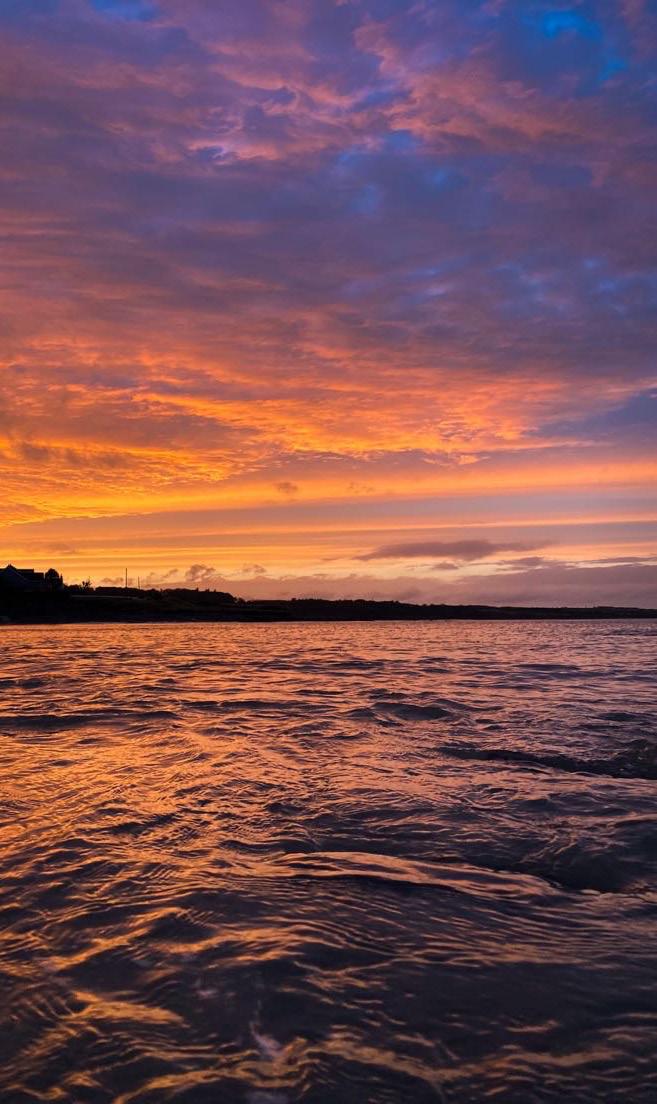Page 43
Interview
An Interview with Environmental Law Specialist Sinéad Martyn By Emma Bowie, SF Law Sinéad Martyn is a Senior Associate with McCann Fitzgerald, specialising in planning and environmental law. She is also the secretary and treasurer of the Irish Environmental Lawyers Association. As an undergraduate law student in Trinity, what drew you to the study of environmental law? I chose environmental law as one of my elective subjects in fourth year. Yvonne Scannell was teaching the module, and she was an excellent lecturer - she made the subject so practical and interesting. Her class size was relatively small, and she really invested a lot of time into her students, meeting us one-to-one to give us feedback on our essays. She has always looked out for her former students as well, who would often give us guest lectures, such as current High Court Judge Garrett Simons… I would say that Yvonne is responsible for the careers of many environmental and planning lawyers in Ireland! Environmental law is also quite a new area of law, especially in Ireland, which I found really interesting as an undergraduate student. On the planning side, the law is quite codified, but there is also a lot of case law. The subject was so different from any of my other modules, and I thought in my final year that it was something which I would like to pursue. After your initial law degree, you completed a Masters in Philosophy in Environmental Policy at the University of Cambridge. Why did you decide to pursue a postgraduate degree, rather than beginning your professional training directly after graduation? I graduated in 2010, which wasn’t a great time for jobs, so that probably influenced my decision to pursue further study. I knew that I didn’t want to do a masters in pure law – personally, I felt like that would have been an extension of my four year degree. While I would have definitely learned something new, I knew that I would not necessarily learn any new analytical skills. Initially, I considered doing a masters in environmental economics, but unfortunately, an undergraduate degree in economics was required to be considered for those courses! I began to research other postgraduate courses which covered environmental economics as well as law, and found that the MPhil in Cambridge had a really broad curriculum. Over the course of the year, I studied economics, planning, sustainable communities, and legal issues relating to land use and tenure issues. Because there were students on the course from different backgrounds, I got a better sense of the non-legal issues that are associated with environmental law. I think that it is important for anyone considering a career in environmental law to go into the sector with this broader, more holistic understanding, as you are constantly dealing with non-lawyers - ecologists, scientists, developers, activists - people from a range of different backgrounds and interests in a given case or transaction. To be able to understand where everyone is coming from is something which is challenging, and the masters definitely helped in that regard. Environmental law is a multifaceted area of law which concerns both the private and public sectors - legal experts in this field may work with multinational corporations, government agencies, or in the area of policy research. Why did you decide to pursue a career in corporate law, and what attracted you to working with McCann Fitzgerald? I think that there is a real stability and community that comes with working for a corporate law firm, and that is what drew me to McCann Fitzgerald in particular. I think the concern from an environmental lawyer’s perspective is that if you’re working for a corporate law firm, you’re working for the bad guy – I guess that is how environmen-




















